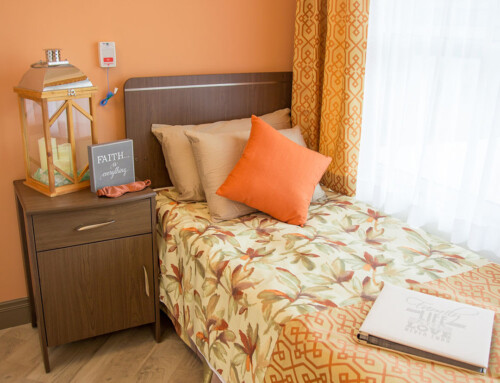Retirement marks a pivotal chapter in life’s journey, transitioning from years of hard work to a period of relaxation and self-discovery. While this milestone is filled with anticipation, it also demands thoughtful planning and consideration for most Americans. Deciding on the perfect moment to retire is different for everyone, but some general guidelines can help, especially if you are considering assisted living in the future.

Finding The Best Time to Retire
Your health, financial status, lifestyle, and personal job enjoyment can all play considerable roles in when retirement is best for you.
Personal Health and Well-being
Deciding when to retire should start with a personal health assessment. Are work-related stress and physical demands impacting your health? If so, early retirement might bring much-needed relief and a healthier lifestyle. However, extending your career could benefit your health if your job contributes positively to your mental and physical well-being by keeping you engaged and active. Reflect on how transitioning to retirement or moving into an assisted living community could offer the support and facilities you need to maintain or even improve your health and well-being.
Financial Security
Financial readiness is a cornerstone of a stress-free retirement. You should complete a comprehensive review of your financial assets, pension plans, savings, and any debts you may have. Consider the costs of hobbies, travel, healthcare, and potential long-term care needs. If you’re looking at assisted living or memory care options, get an early grasp of those expenses and explore how they fit into your budget.
Emotional and Social Considerations
Work often provides more than a paycheck – it offers structure, purpose, and social interactions. Assess the role your job plays in your life beyond financial support. Retirement brings significant changes to your daily routine and social life. Think about how you’ll fill your days and with whom you’ll spend your time. The prospect of reduced social interactions post-retirement can be daunting for many. Start cultivating hobbies and networks outside of work now so you have a community to lean into when you retire.
Integrating Assisted Living Into Your Retirement Plan
Retirement planning is all about looking ahead to the future, especially when considering the possibility of assisted living or memory care. Even if you are unsure exactly what path you will take in the future, exploring facilities early allows you to understand the services and environments available, giving you greater confidence when deciding. Many seniors become overwhelmed when their situation changes and immediately need to make a life-changing decision about where to live. Making this choice early as part of a retirement plan allows you to maintain control, no matter what happens.
If you did not integrate assisted living into your retirement planning in the past but are now considering the option, remember that the price is likely to be higher than living at home, especially if your house’s mortgage is paid off. However, moving to assisted living can often free up lots of funds, such as by selling the house you no longer need. When financial planning, remember the reduced costs as well as the additional costs and see how they balance out.
Your Retirement, Your Timeline
Retirement is a deeply personal journey, and there is no one-size-fits-all answer to the question of when it’s the right time to make the transition. Planning for retirement should be approached with careful thought and consideration – it might be one of the most impactful decisions for the rest of your life.
If assisted living will be a part of your retirement journey and you are looking for a partner, contact A Banyan Residence today.







